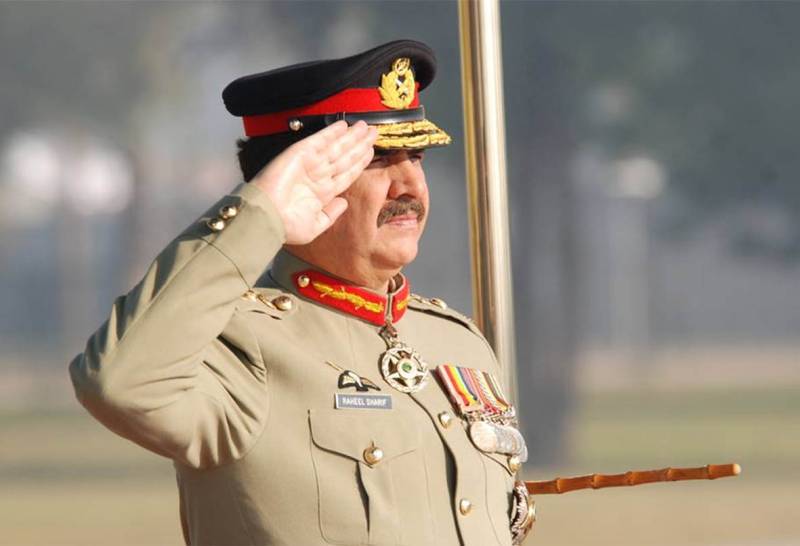The media is agog with the news of General Raheel Sharif’s likely appointment as the Commander of the 39 nation Islamic Military Alliance ostensibly being created to fight terrorism, at the behest of the ambitious and aggressive Saudi Defence Minister and son of the King, Prince Muhammad Bin Salman al-Saud.
Keeping in view the Saudi led war against Houthis in Yemen and obvious demonization of Iran as being behind them in order to spread her influence in the Middle East, to the obvious exclusion of Iran, Iraq and Syria from this Islamic Military Alliance , this move is drawing mixed reactions from various quarters.
Obviously, those who favour Saudi Arabia and criticize Iran on the basis of their sectarian bias are seen congratulating the General while those who feel otherwise are clearly expressing their displeasure.
On the other hand, those among the Muslim Intelligentsia who desire the Muslim World to come together in this fight against terrorism, and also support the need for these two very important countries to mend their fences for the sake of peace, friendship and prosperity of the Muslim World, are uneasy about the Saudi-Iran tensions. They are either skeptical of things going from bad to worse vis-a-vis Pakistan’s relations with Iran or expect something good to come out of this decision believing in General Raheel Sharif’s abilities sense in bridging this unfortunate Saudi-Iran divide.
Whether this news is really true is still not confirmed officially, except for the Pakistani Defence Minister’s revelation about it in a TV program with a private TV channel, as well as the media reports or footage received from Saudi Arabia which shows the General enjoying full military protocol in the public eye!
Although social media is also awash with comments about this news, and as usual some people are very excited at the prospects of General Raheel performing some miracles in his new role, while others are skeptical. Since this is purely a matter of conjecture let’s not waste much time on it. However, we can offer a few comments based on historical precedence and realpolitik.
Kings, princes, dictators who nurse a pathological dislike for a perceived rival, seldom – if ever – accept sound advice based on strategy, ethics or for promotion of peace, rather they want action which satisfies their ego or desire for revenge? Here, the terrorism that this military alliance wants to fight has been spread at least in Libya, Iraq And Syria by those organizations or groups which owe their birth and finances to Saudi Arabia, Qatar and other Arab countries.
Majority of those who hold the reins of power in most of the Islamic countries which form part of this military alliance are usurpers of power in their own countries and serve at best as pawns in the game of world power politics between the United States and Its European allies versus Russia. Meanwhile those which also show a semblance of economic freedom like Turkey, Iran And Saudi Arabia are involved in a tight rope act to balance their relations between these two power centers. China prefers taking a back seat in this big power rivalry in order to expand and solidify its economic and political reach and build up its clout as the third power.
Meanwhile, Saudi Arabia is already feeling fatigued by its exertions in Yemen and by the fall in its revenues due to the steep fall in oil prices as well as the turn of events in Syria. How and what role can another armed meddling in Syria and Iraq play appears quite uncertain as the Americans and her European allies have already been outsmarted by the Russians in Syria.
The only place where this new found military alliance can be asked to play some role is in Yemen. For which the Saudis may ask General Raheel Sharif to cobble some sort of mercenary force to rout the Houthis, who have proved to be quite a hard nut to crack and thus shortchange the Iranians.
But, this would not only be a very risky undertaking militarily but a fiasco in the political sense for at least Pakistan! Thus, I very much doubt that General Raheel Sharif would go for such an option as In-charge of this military alliance.
With regards to fighting the ISIS (or Daesh), which is the actual threat to the peace, progress and stability of all Muslim countries, it appears highly unlikely that Saudi Arabia, Qatar or UAE would commit their forces to do so in Syria or Iraq. They are already at loggerheads with the governments, as they consider the majority population of Iraq and the ruling clique in Syria as their ideological foes, rather, as heretics or apostates. Moreover, their intervention in the Syrian conflict in support of various jihadist factions is already an established fact.
Thus, they won’t mind these two countries to keep suffering due to disunity, instability and bloodshed till the possibility of a change of regime along-with ideological change remains even remotely possible.
Hence, we should all hope and pray that nothing of the sort happens and the general avoids falling into a quagmire because Houthis are not the Taliban and Yemen is not North Waziristan!






